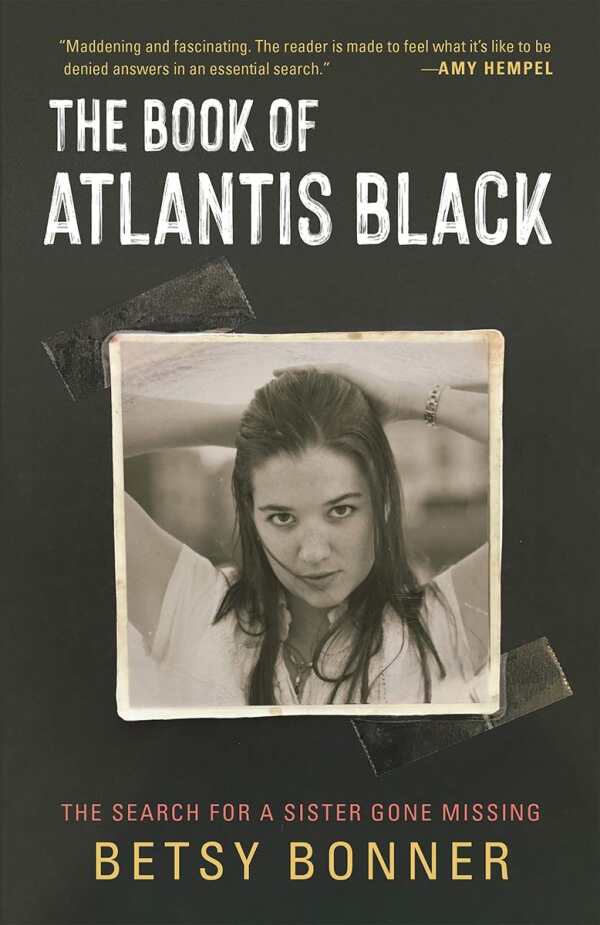The Book of Atlantis Black
The Search for a Sister Gone Missing
Once, riot grrrl Atlantis Black’s star was on the rise, but success evaded her, replaced by darkness. Still, the enigmatic musician had the perspicacity to ensure that her legacy would endure via unanswerable questions, many of which are wrangled in her sister Betsy Bonner’s piercing true crime investigation, The Book of Atlantis Black.
Though Bonner’s love for, and fascination with, her sister is apparent throughout the text, her shifting perceptions of charismatic Atlantis also reveal the degree to which Atlantis’s appeal rested on a dangerous edge. Atlantis, born Nancy but prone to personal reinvention, is variously shown to have been a survivor and a manipulator, stalked and obsessive, and protective and cruel. She may have inherited her mother’s depression; she is known to have attempted suicide; and she was vivacious and creative in ferocious bursts.
Bonner juggles Atlantis’s contradictions as she works to tell her sister’s story in an objective manner. Not even Atlantis’s end is approached with certainty: was the body that Bonner’s mother identified in a Tijuana morgue actually Atlantis’s, or did Atlantis manage a magnificent deception? Was Atlantis’s story a familiar tragedy, marked by abuse, drugs, and death, or was she more mythical than that: the victim of government conspiracies and a participant in grandiose love affairs? It becomes clear that people around Atlantis thirsted to believe her stories; it becomes certain that some element of her untamed spirit kept on roaming past her pronounced death.
Even more engrossing than the book’s persistent mysteries is Bonner’s hunger to understand her enigmatic sister, and to populate the empty spaces that Atlantis opened in the universe with truths. Resisting definitive pronouncements, The Book of Atlantis Black assumes the qualities of the departed musician herself: marked by yearning, it revolves around absences and is irresistible to the end.
Reviewed by
Michelle Anne Schingler
Disclosure: This article is not an endorsement, but a review. The publisher of this book provided free copies of the book to have their book reviewed by a professional reviewer. No fee was paid by the publisher for this review. Foreword Reviews only recommends books that we love. Foreword Magazine, Inc. is disclosing this in accordance with the Federal Trade Commission’s 16 CFR, Part 255.

